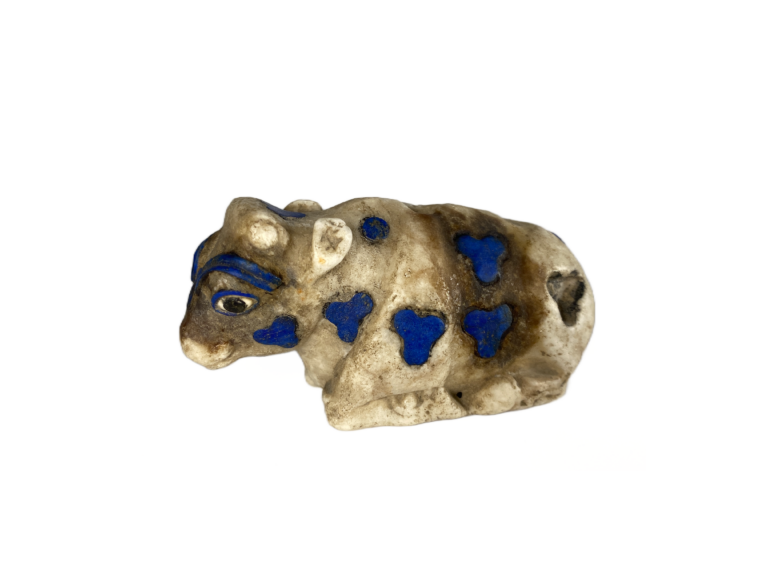
The U.S. has repatriated two ancient looted sculptures, collectively valued at $275,000, to Iraq.
One, a Sumerian alabaster bull, belonged to philanthropist Shelby White, a member of the Metropolitan Museum of Art’s board of trustees. It joins a significant number of other objects from her collection that the Manhattan District Attorney’s Office has seized in the past two years. Authorities recovered the second piece, a Mesopotamian limestone elephant, from disgraced antiquities dealer Robin Symes, who had hidden it in a storage unit since 1999.
“Once again, we see historic and priceless antiquities hidden from the public and sitting in the possession of traffickers and looters,” District Attorney Alvin L. Bragg Jr. said in a statement. “We will not allow New York City to be a safe harbor for stolen cultural artifacts.”
A long-time member of the Met’s board of trustees, White and her husband, Wall Street investor Leon Levy (who died in 2003), were prolific antiquities collectors who started buying ancient objects in the 1970s. The couple have donated many works to museums and gave the Met $20 million to renovate its Greek and Roman Galleries, which were named after them.
US philanthropist Shelby White poses for a picture ahead of the inauguration of the Lod Mosaic Archaeological Center of Israel, on June 27, 2022. Photo: Menahem Kahana /AFP via Getty Images.
But in recent years, as countries of origin have sought to recover their heritage and calls for restitution have gained momentum, collections like theirs have come under scrutiny.
Works from the couple’s holdings were among a group of Greek antiquities restituted in March. And earlier this month, the DA returned two seventh-century stone carvings to China that belonged to White and were on loan to the Met—part of a growing cache of antiquities either in the museum’s collection, or on view at the institution, that have been seized and/or repatriated due to looting in recent months. Reports suggest there is more where that came from.
Both repatriated Iraqi artifacts are believed to have been looted from the ancient city of Uruk, today known as Warka, during the Gulf War. The Sumerian bull would have been a religious offering at temple of the goddess Inanna, while the elephant is a rare example of the depiction of the animal in the region’s artwork.
Stolen antiquities have been a priority for Bragg, who has overseen the recovery of nearly $160 million worth of antiquities, comprising more than 800 objects stolen from 24 countries, since taking office at the beginning of 2022.
Thomas Acocella, the assistant special agent-in-charge of Homeland Security Investigations New York, and Dhafer Abdulrazaq Jalil, counselor at the Embassy of the Government of the Republic of Iraq in Washington, D.C., were present for the repatriation ceremony.
“I’m grateful for the work by the Manhattan District Attorney’s Office for its efforts to repatriate these precious, historic antiquities to Iraq,” Salwan Sinjari, the Iraqi Chargé d’Affairs to the United States, said. “These pieces belong to Iraq—and belong in Iraq—and now they will help the Iraqi people better understand and appreciate our own history and culture with this connection to the past.”